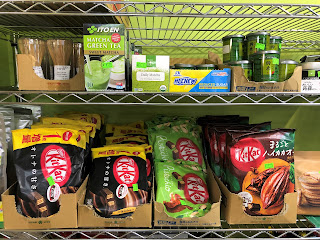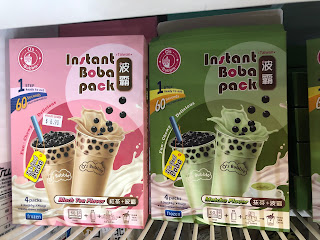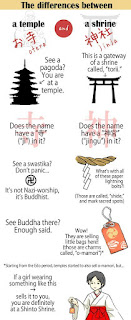What's this? Another blog post so soon after the last one? As a character in a 1930's movie might demand, "Say, what gives?"
What gives is "food". Back in my Taiwan days, I would blog on a seemingly daily basis, giving my NT2 on political issues of the day and sharing news articles on Japan-Taiwan relations, in addition to wholesome family-themed posts focusing on our free time activities, and all the while creating an online journal on my daughter growing up. I also carved out a cyber niche for myself, being the weeb white guy who shared photos of the Japanese language being abused and misused on signs in Taiwan (of which there were/are numerous examples!) For my efforts I was inexplicably recognized a couple of times with a virtual award, though from whom was never quite clearly explained to me (and there was no money included). I also generated controversy and online abuse, receiving angry and hateful comments from those who for unfathomable reasons took offense that I didn't enjoy drinking Taiwan Beer 台灣啤酒 (which I still don't, with some of those critics now extolling the virtues of craft beer in Taiwan). One reader was livid that I had the nerve to suggest that the so-called "hot" Taiwanese singer Jolin Tsai 蔡依林 would go unnoticed on the streets of, say, Shinjuku 新宿 or Dotonbori 道頓堀. Those were the days!
Now I'm older and fatter, and not any wiser, and my blog posts tend to reflect the sedateness of my advancing years. From 164 posts in 2011, I reached out to the online world a paltry 18 times last year, with most of my entries being about travels or major life upheavals. Sure, there's the occasional rant, but for the most part I seem to irk a lot fewer people on Blogger (the same can't be said for Facebook). So why this post? Was there another trip this weekend? Another curmudgeonly and pointless rant? A new medical condition uncovered? No to the first and third. As for the second, please read on...
Occasionally I will come across a Westerner who will make a comment on social media along the lines that Japanese food in Taiwan tastes just as good, or even better, than what you can find in Japan. Yes, that's all. Statements like these don't anger me (different tastes and all that), but it does leave me scratching my scalp (there not being much hair on top) as to why someone would think so. For during the dozen or so years I was living in Taiwan, I can't recall ever having a meal in a Japanese restaurant there that was anything other than mediocre. And I ate 日本料理 a lot during those years, though more for its familiarity than anything else, in much the same way that you eat at McDonald's - the food doesn't taste great but at least you recognize everything.
Now it might be pointed out that Taipei 台北 has Michelin-starred Japanese restaurants. But I didn't live in Taiwan's capital. I lived in The Real Taiwan™, Taichung 台中 to be exact, with much time also spent in rural Yunlin County 雲林縣. My tax bracket meant I didn't go to upmarket fusion establishments, or to Japanese restaurants located inside five-star hotels. Instead, my gastronomic experiences tended to be limited to those eateries patronized by average Taiwanese folks. And in these diners, no matter what I ordered, something was missing. And that intangible was "flavor".
Virtually every meal I ever had in a Japanese restaurant in Taiwan was bland. Not many people might realize that Japanese cuisine tends to be high in salt, from condiments such as soy sauce to a vast range of salt-preserved foods. This use of salt might be one reason why Japan has the highest rate of stomach cancer in the developed world, but it's also one reason (out of many) why the food tastes oh so good. Taiwanese palates, however, don't seem to appreciate this aspect of the cuisine very much, which might explain why local cooks are reluctant to flavor the food. I was told on more than one occasion by Taiwanese who had traveled to Japan that they preferred the Japanese food they would eat in Taichung to that they had in Tōkyō 東京 or Hokkaidō 北海道 while on vacation, for example, because the taste of the dishes in Japan was "too strong"! My wife, upon returning to Taiwan after spending a year in Yokkaichi 四日市, found it difficult to enjoy dining at Japanese restaurants in the home country because, as she put it, the food on offer was "tasteless".
And it isn't just taste, or the lack thereof. Take sushi 寿司 and sashimi 刺身, for example. Things might be different at high-end sushi restaurants in Taipei, but in the modest establishments that I patronized in central Taiwan, the sushi would invariably come with far too much wasabi ワサビ, while the sashimi was often served half-frozen! I've actually eaten better at proletarian conveyor belt sushi restaurants 回転寿司店 in the Japanese countryside. Rāmen ラーメン would be prepared with too much oil, and of course not enough salt. And then there's my favorite comfort food, tonkatsu 豚カツ. In Japan, I could look forward to a tasty pork cutlet fried in a light coat of bread crumbs. In Taiwan, the same dish on too many occasions consisted of fatty meat overcooked in too much batter.
Take a deep breath and relax. I'll be the first to admit my expectations were probably too high. After all, I lived for more than a decade in Tokyo, as well as in Okazaki 岡崎 and Yokkaichi. Due to personal relationships, a lot of time was spent in Kanra 甘楽 (a small town in Gunma Prefecture 群馬県) and Matsumoto 松本 (one of the nicest cities in all of Japan, and home to some of the country's more unusual culinary offerings). In over 30 years of traveling in the Land of the Rising Sun, I have eaten, and eaten well, in restaurants from Hokkaido to Okinawa 沖縄 (I didn't start putting on weight until after moving to Taiwan, thanks to a combination of marriage, domesticity and night markets). Just as it isn't reasonable to expect Chinese food in the U.S. to be on a par with what can be enjoyed in China, it isn't fair to demand the same tastes in Taiwanese Japanese eateries. After all, there are many Taiwanese restaurants 台湾料理店 all over Japan, and having lived in Taiwan, I would never say "Taiwanese food in Japan is just as good, if not better, than in Taiwan".
For the record, not every meal I've had in Japan has been a pleasurable experience - more than 30 years later, I still don't know if that was a vegetable or a slug that was placed on top of the bowl of noodles I ordered at the ferry terminal in Imabari 今治. And the worst Japanese food I ever had the misfortune of eating in Taiwan was prepared by a Japanese "chef" at a restaurant in central Taichung. It turns out the cook/owner was a retired salaryman サラリーマン with no culinary experience - he opened his establishment after moving to Taichung with his Taiwanese wife following retirement. So much for foodies and the "authenticity" they so crave!
In conclusion, there's no conclusion (or point to this post), other than to say "Japanese food is better in Taiwan than in Japan" is like claiming "Ximending 西門町 is more like Shibuya 渋谷 than Shibuya".
Also, this post gives me an excuse to share some photos from Hana Market, a small Japanese grocery store on the corner of 17th Street NW and U Street NW in Washington, D.C., that Amber and I drove to on this Mother's Day (Shu-E preferred to relax at home):









No comments:
Post a Comment